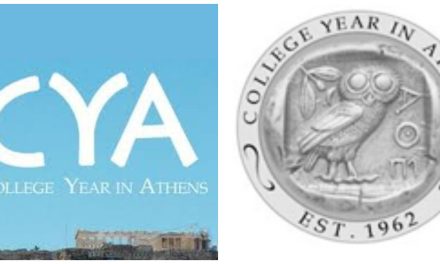Αccording to official provisional figures that the National Documentation Centre (EKT) at the National Hellenic Research Foundation sent to Eurostat, Greece spent a record amount on research and development as a percentage of its economy in 2015, reaching the historic high of 0.96 pct of its GDP.
The publication of the data is part of the regular production and publication of official statistics for Research, Development and Innovation in Greece carried out by EKT in co-operation with the Hellenic Statistical Authority.
R&D spending in Greece has been growing steadily in recent years, both in absolute terms and as expressed in GDP. Spending on R&D came to 1.64 billion euros in 2015, up from 1.49 billion euros in 2014 and 1.39 billion in 2011. The “R&D Intensity” index, expressed as a percentage of GDP, has also risen steadily, from 0.67 pct in 2011 to 0.84 pct in 2014 and 0.96 pct in 2015.
Sources of Funding
According to the EKT data, the largest contributor to R&D is the higher education sector, with R&D expenditures of 643.8 million euro (0.37% of GDP). For the business sector, the amount was 561.4 million euro (0.32% of GDP), while the government sector spent 464.5 million euro (0.26% of GDP).
Government funding remains the main source of R&D funding. In 2015 this funding came to 887.3 million euro, an overall share of 52.7%. Government funding (mainly individual sources: ordinary budget and funding from EU Structural Funds (ESPA)) supports R&D activities performed in all sectors of R&D and is the main source of funding for the Higher Education and Government sectors.
The second biggest source of funding is the business sector, providing funds of 534.8 million euro (31.8%) for the country’s R&D activities. Most of the funds, 462.1 million euro, were invested in business R&D, while the remainder went to R&D activities performed in the higher education sector (21.6 million euro), the government sector (48.8 million euro) and private non-profit sector (2.4 million euro).
The European Union is the third source of funding, providing 169.5 million euro (10.1% of total), a fact that indicates how high the competitiveness of Greek organizations to win European research projects is.
17% increase in Personnel
A further effect of the substantial increase in R&D expenditures is engagement in R&D activities. In 2015, the number of Full-Time Equivalents (FTE) -which represents the ‘positions’ of full-time employment where one FTE is equivalent to a full-time employee- increased by approximately 17% compared to 2014, for both total R&D personnel and researchers. The total number of R&D personnel in 2015 came to 50,512.2 FTE and for researchers was 35,068.7 FTE. The biggest increase was in the higher education sector.
Particularly noteworthy is the fact that owing to the significant increase in R&D expenditures in Greece, the country finds itself in an improved position in the EU member states. Greece is now in 16th place as far as R&D expenditures are concerned and 20th place for R&D Intensity.
Read more: Increase in key Research and Development indicators for expenditure and personnel in Greece
See also: Industrial scholarships to boost research in Greek enterprises, Hellenic Foundation for Research and Innovation to Strengthen Research across Greece














